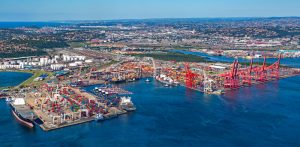 Shirley Le Roux, MD of TraveluXion gives us her take on the debate whether Key Account Managers (KAMs) in Travel Management Companies (TMCs) should be upskilled with a procurement background. “Are the tools KAMs have in their arsenal not more worthy of debate?” she asks in this month’s SmartProcurement.
Shirley Le Roux, MD of TraveluXion gives us her take on the debate whether Key Account Managers (KAMs) in Travel Management Companies (TMCs) should be upskilled with a procurement background. “Are the tools KAMs have in their arsenal not more worthy of debate?” she asks in this month’s SmartProcurement.
“I have read the views for and against: some parties believe that this would equip KAMs with greater knowledge so they can add value to discussions, better understand the basic principles of procurement and, as such, benefit by having a stronger procurement focus,” says Le Roux.
Furthermore, up-skilling KAMs in TMCs with a procurement background loosely aligns with travel’s current move away from reporting to HR and more into a procurement fold.
On the other hand, others believe that KAMs should retain their customer-centric focus (travel is, after all, still a service) and while procurement officials drive for greater savings and continue to focus on the bottom line of the organisation KAMs need to ensure that travellers’ needs are still taken into account – valuing a face-to-face, warm and caring approach.
Both sides have merit. However, ultimately, the level of expertise needed in KAMs will largely depend on who they interact with at each client-environment.
Add to this that travel of any shape or size does not fit perfectly into traditional procurement processes: prices vary from day-to-day for what seems to be the same product and systems are not built to cater for the various pricing categories that exist and the plethora of suppliers involved in one single transaction.
Therefore, no single client instance is the same, which necessitates that KAMs spend a disproportionate amount of time adjusting management information system (MIS) reports, gathering data and consolidating data from various sources, says Le Roux.
“Some do this very well others not so well. But the fact remains that it is less than valuable analysing data after the fact.”
Once a cost has been incurred your bottom line is affected and despite the best measures instituted to prevent such occurances it is generally a “waste of good time and energy”.
Corporations want to ensure that they have line-of-sight on any potential expenditure before it is incurred. This assists in eliminating wasteful expenditure, lowers the risk of mitigation in terms of duty of care towards employees and improves visibility over budgets at the time of approving travel.
“Surely we should be debating which tools we can implement to ensure we have information readily available that caters for the unique aspects of T&E-based expenditure and achieve a corporation’s goals in partnership with its TMC,” says Le Roux.
The goal is to free KAMs from gathering data, correcting reports, chasing paper, following-up on lost documentation, querying why savings opportunities were missed, and trying to establish where the delays were (was it approval processes or fulfilment that resulted in increased cost variance?)
Technology must enable experts in this procurement cycle to focus on what they do best – because if it succeeds then debates around adding value would be easily measurable moving forward.
For more information on the tools available and for TraveluXion’s assistance contact Shirley.leroux@traveluxion.co.za



























